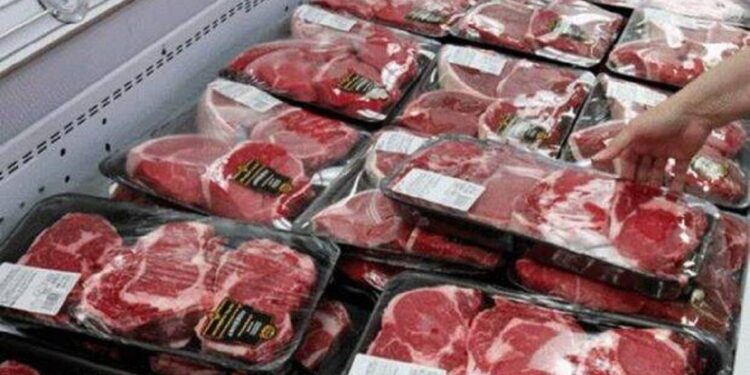 The vertically integrated supply chains with high bars on quality have helped startups to step up growth. (Reuters)
The vertically integrated supply chains with high bars on quality have helped startups to step up growth. (Reuters)The surge in the digital grocery segment categorically triggered by the Covid-induced lockdown has its positive impact trickled down to the online meat delivery market as well. The broader meat market, which is primarily unorganised, had a share of online meat delivery startups such as Licious, Zappfresh, FreshToHome, TenderCuts, and more of around 0.2 per cent in 2019. However, due to the lockdown, the online meat delivery market has managed to post 2.5-3X gross merchandise value (GMV) during the January-September 2020 period, according to the RedSeer data. “The shift essentially happened in the broader e-grocery market from modern retail stores offline to online stores. For e-grocery, it was 0.3 per cent online penetration before Covid which is minuscule. Similarly, for online meat, the number is small but growing,” Rohan Agarwal, Director, RedSeer told Financial Express Online.
Particularly amid Covid, addressing the pain points associated with offline or local butchers such as hygiene level, the number of product options, wait time at a shop and odour have helped meat delivery startups to leverage the situation in the last eight-nine months. “Our business has grown three times since March lockdown. People are getting too conscious of healthy meat-eating as they are more scared around how the meat is packed offline with the minimum human touch. This has become the centerpiece for the entire farm-to-fork process where there is very little probability of product contamination. For branded direct-to-home brands like us, the trust factor has zoomed up,” Deepanshu Manchanda, Founder and CEO, Zappfresh told Financial Express Online.
Also read: NPA fear: Hotels, restaurants seek relief on lines of MSME loan restructuring ahead of possible lockdown
India’s meat market size in 2019 stood at around Rs 3.3 lakh crore of which more than 90 per cent was unorganised. The share of online sales stood at 0.2 per cent worth around Rs 700 crore with over 80 per cent online market led by meat delivery startups such as Licious, Zappfresh, FreshToHome, TenderCuts, etc., while 15-20 per cent share was cornered by verticals such as BigBasket, Milkbasket, etc. and less than 1 per cent was controlled by Swiggy, Dunzo, etc., according to RedSeer. The vertically integrated supply chains with high bars on quality have helped startups to step up growth.
The online meat sales also saw growth in ready-to-eat or ready-to-consumer products as consumers preferred them too at their homes instead of going out. “Lots of products like sausages, momos, and other frozen products saw higher demand with people consuming it at home,” added Manchanda. Zappfresh is looking to close a new funding round by around January next year.
Post lockdown, during March and April, there were certain apprehensions among consumers to have meat that led to a decline in the overall meat consumption. However, those who were consuming it, really wanted it to be safe. “Hence, they relied on players who are talking about the quality of meat as the key value proposition,” said Agarwal. The overall meat market is likely to grow to more than Rs 4.6 lakh crore by 2024.
Get live Stock Prices from BSE, NSE, US Market and latest NAV, portfolio of Mutual Funds, calculate your tax by Income Tax Calculator, know market’s Top Gainers, Top Losers & Best Equity Funds. Like us on Facebook and follow us on Twitter.
![]() Financial Express is now on Telegram. Click here to join our channel and stay updated with the latest Biz news and updates.
Financial Express is now on Telegram. Click here to join our channel and stay updated with the latest Biz news and updates.












